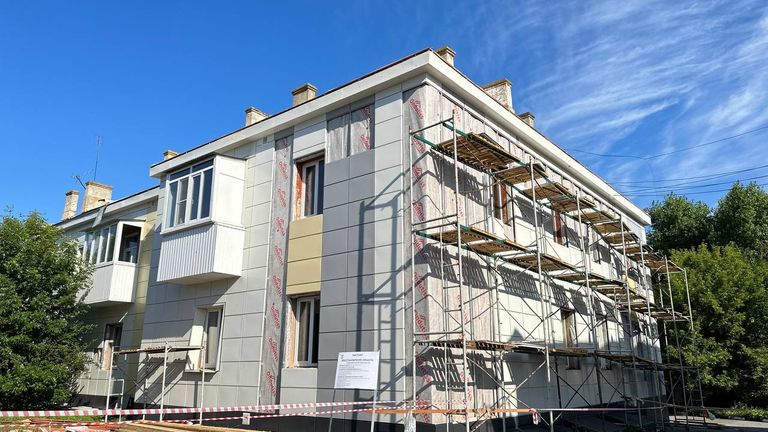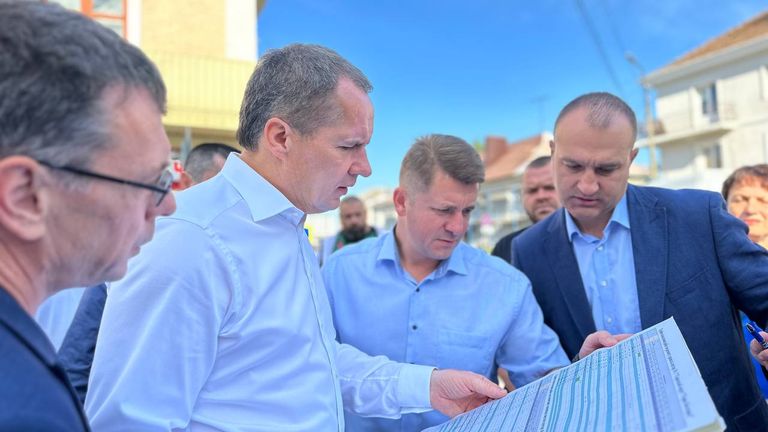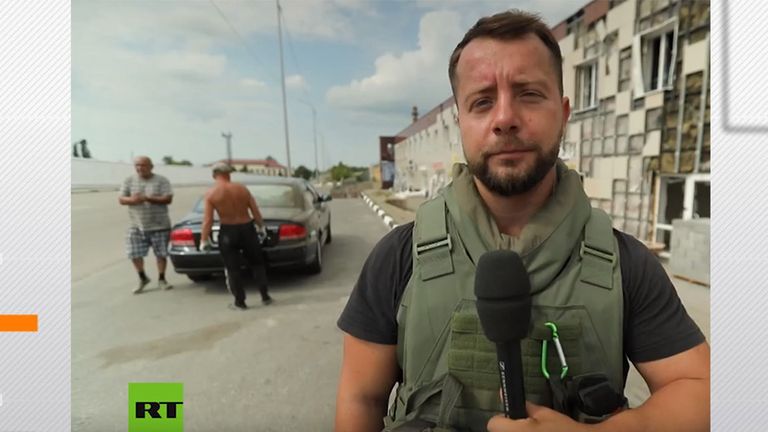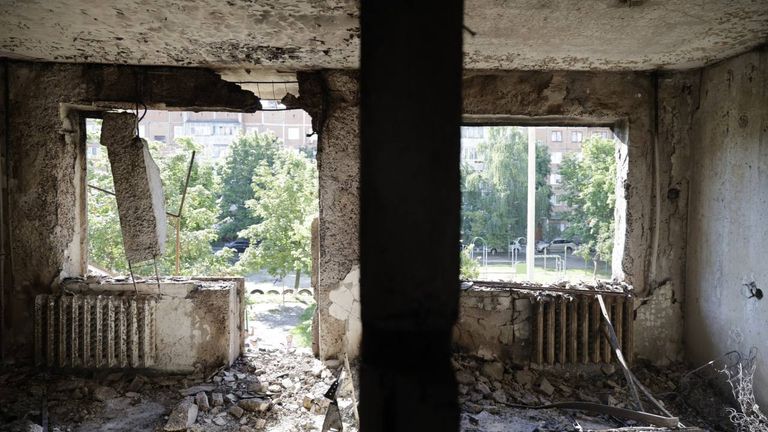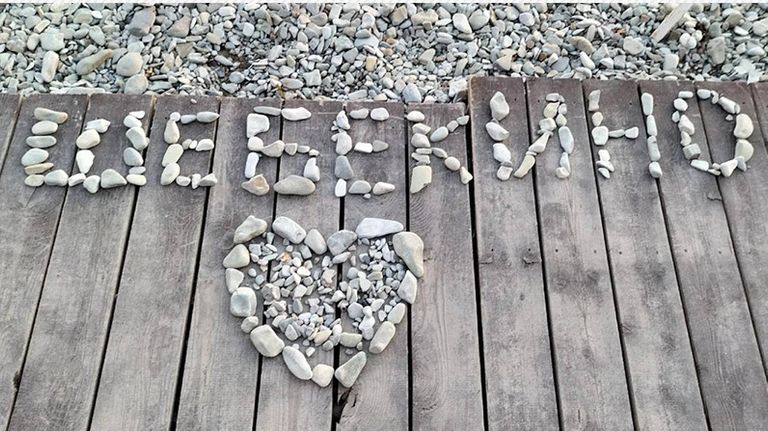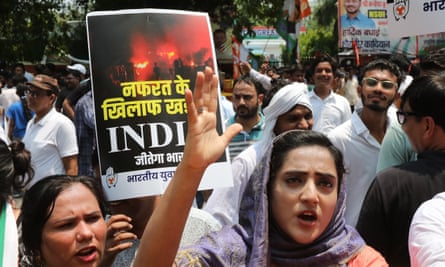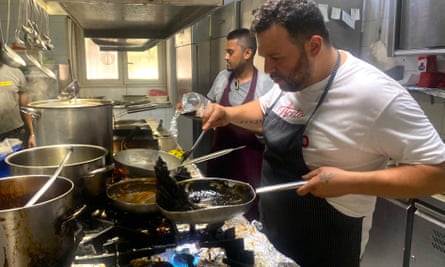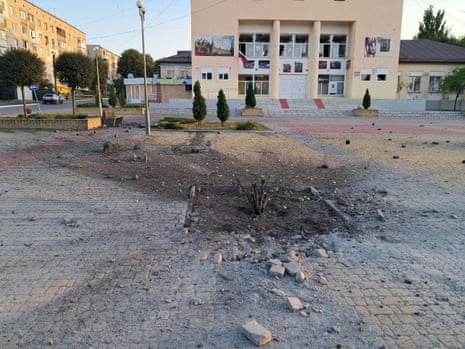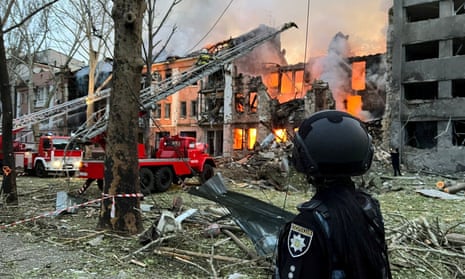Until the war broke out, the town of Shebekino in Russia's Belgorod region was an average border settlement centred around agriculture and a nearby pasta factory.
But in June its name took on a new meaning - as the Russian town bearing the brunt of its war in Ukraine.
Shelling and drone attacks on Russian border towns have intensified in recent months, alongside a spate of ground incursions by pro-Ukrainian paramilitary groups. In early June, Shebekino residents were asked to leave their homes for temporary accommodation in safer parts of the region - the largest evacuation in Russia since the start of the war.
Over a month on from the evacuation, Shebekino residents are presented with a confusing picture of the situation in their hometown. Russian authorities are keen to share how the town is recovering from attacks while simultaneously issuing daily shelling reports that show the district continues to be targeted.
"How long will we risk our lives? Living in Shebekino is dangerous, and this must be recognised," one resident wrote under a post by local authorities on the Russian social media site VKontakte.
Experts have told Sky News the ongoing situation could be hardening pro-war sentiment in the region.
"The real risk for the Kremlin is that people will demand a more aggressive way to deal with Ukraine because they feel vulnerable," said Tatiana Stanovaya, founder of Russian political bulletin RPolitik and Senior Fellow at the Carnegie Russia Eurasia Center.
Shebekino, which is home to about 40,000 people, sits just a few miles from Russia's border with Ukraine.
It garnered international attention in early June when a paramilitary group aligned with Ukraine crossed the border and attempted to take up positions on the town's outskirts. It was the second time in two weeks that a militant group crossed over from Ukraine into Russian territory to engage in combat - something not previously seen in the Ukraine war. Ukraine has denied involvement in either incident.
But local authority reporting, as well as independent analysis from the defence intelligence firm Janes, indicates that shelling and drone attacks in the region had been escalating for weeks before - and continued at this level for long after the ground assault was repelled on 1 June.
"The sirens told us to go down to our basements first thing this morning, there were such horrible explosions, even our basement shook," one elderly Shebekino resident told a local journalist in May.
"We never thought our town would suffer like this. We have never been so scared as we were today... I pray to God that all of this can be rectified."
Throughout June, access to the city was restricted for security reasons with limited electricity and drinking water. According to the Belgorod Governor Vyacheslav Gladkov, 6,000 people from Shebekino moved to temporary accommodation centres in towns across the region following an evacuation order, with many others leaving independently.
By July, he said nearly 800 buildings had been damaged in the town since the beginning of the summer, including 494 houses. Sky News has not been able to verify any of these figures.
The authorities are now keen to portray an image of a Shebekino on the mend, where violence is a thing of the past.
Mr Gladkov's Telegram channel shows him visiting some of the buildings under reconstruction in the area. Statements issued by him say 110 sites in the town are currently being renovated following shelling damage.
The image of a rehabilitated Shebekino has also been broadcast by Russia's national media.
A seven-minute-long news report by the broadcaster RT showed viewers ongoing construction work around the town, as well as interviews with locals describing how the town is returning to "normal life".
Some residents, however, are sceptical.
A comment under the video on one local community page refers to the military flak jacket worn by the reporter: "Normal life you say? What's with the body armour then?"
The authorities even began offering those housed in temporary accommodation the opportunity to return to Shebekino on 4 July, but intense shelling in the days that followed meant these returns have now been postponed.
The comments underneath Mr Gladkov's announcement video reveal the concerns held by many at the prospect of re-starting their lives in Shebekino.
The daily regional shelling reports shared on Mr Gladkov's Telegram channel suggest these fears may be well founded.
The figures are given daily via the messaging app Telegram, which means it can be difficult for locals to keep track of trends in the shelling over time. Sky News compiled the data and found that Shebekinsky district, where Shebekino is situated, has been shelled every day since the daily reporting of attacks started on 20 May.
The incidents can't all be independently verified and Russian authorities have been known to distort information relating to the Ukraine war. But they represent the information being presented to Russian citizens.
The reports indicate that direct hits on Shebekino have become less frequent. But the consequences are still grave - the authorities say a woman died on 16 July following what they said was a GRAD missile attack on the centre of town.
The threat of ground assaults from across the border also remain a reality.
On 17 July, Ukraine's Defence Intelligence Agency released a video that it said showed a group of Chechen volunteers fighting on behalf of Ukraine attacking a Russian military convoy near the village of Sereda in Shebekinsky district.
Sky News has not been able to independently verify the report.
Belgorod region has been shelled sporadically since the war began, but this became more regular after Ukraine's counteroffensive took back territory in Kharkiv and Sumy regions late last year. But it was May and June 2023 that saw some of the fiercest attacks.
While the Belgorod authorities' reporting is difficult to verify, experts at Janes confirmed to Sky News that attacks on Belgorod during this period were the most frequent and intense they've been since the war began.
Shebekino appears to be the place targeted most, with 32 incidents reported. Sky News analysis of shelling reports issued by Belgorod authorities throughout the two-month period indicates that the region was hit as many as 620 times.
The analysts Sky News spoke to said the lack of open-source evidence makes it difficult to attribute responsibility to any particular group. However, they explained that the pattern of the attacks can tell us some things.
"The artillery fire is not targeting specific military targets in Belgorod region. It's a lot more random, and there's a lot more civilian infrastructure being hit," said Dylan Lee Lehrke, a senior military analyst at Janes.
"Whoever is behind it is either acting irrationally - targeting the wrong thing - for a purpose. Or it's not a professional military force. Or it could be a professional military force that just doesn't plan on making a ground incursion."
However, they acknowledge the attacks could be in Ukraine's interests.
"We take it as a matter of policy not to assess Ukrainian actions. But it would make sense that shelling would pin certain Russian forces in positions on the border, thereby preventing them from deploying to other positions inside Ukraine," Kateryna Stepanenko, Russia analyst at the Institute for the Study of War, told Sky News.
Ukraine has denied any involvement with the 22 May and 1 June ground incursions and hasn't commented on the ongoing attacks.
The Russian authorities, however, make clear in their messaging that they hold the Ukrainian Armed Forces responsible. This is a view shared by those on the ground in towns like Shebekino.
"People there see Ukraine as a source of threat, an existential threat," said Ms Stanovaya.
"Even if the authorities make a lot of mistakes and are clumsy in the way they deal with these situations, when you are under attack constantly, there is nowhere else to turn."
She points out that public support for the war has always been strong in the Belgorod region. A recent poll by the Chronicles Project found the share of those in support of the "special military operation" to be 69% in Belgorod, compared with 60% in Russia.
Click to subscribe to Ukraine War Diaries wherever you get your podcasts
While there might be frustration with the way the authorities are handling the situation in Russia's border towns, the pro-war sentiment there may in fact be increasing rather than waning.
Dmitry has lived in Shebekino for 10 years. Like many others, he left the town when the shelling was at its fiercest in early June.
"It did not add any love for Ukraine, to put it mildly. They [Ukrainians] fired indiscriminately - their goal was to sow terror, to sow panic. But they achieved one thing - hatred," he told Sky News.
"Like all ordinary people, I live with the hope of a happy and peaceful life. I still hope for peace now - but peace after our victory," he said.
The ongoing situation in towns such as Shebekino has also made its way into Russia's military hardliner circles, who use it as propaganda to argue that President Putin isn't doing enough to win the war in Ukraine.
"There are a lot of people in Russian ultra-nationalist circles who are blatantly saying 'Why did we withdraw from Sumy and Kharkiv regions? They should have been our border zone so that Ukrainians can't shell our territories.' There's a lot of discontent," Ms Stepanenko said.
Read more:
Why Putin's mistrust of generals is making his forces weaker
Ukraine winning the war is not impossible - but it's certainly very, very difficult
Ms Stanovaya echoes this sentiment but outlines that most of Russian society are more worried about NATO and the West's weapons to Ukraine, allowing Putin to largely sweep the situation under the carpet.
"Russian authorities tend to downplay the significance of the situation. Putin considers this a provocation aimed at making Russia trip up," she said.
However, if the situation continues, both Ms Stanovaya and Ms Stepanenko agree this approach could become hard to sustain.
"The more these issues occur, the more discussion we see. It's a reminder that there's not enough protection for these territories, and it's a reminder of the incompetence of protecting Russian territory," said Ms Stepanenko.
The situation in towns like Shebekino is vastly different to what the people of Ukraine face every day. But it shows the heavy price that some of Russia's citizens are paying for its war.
Data visualisation: Ben van der Merwe, data journalist
The Data and Forensics team is a multi-skilled unit dedicated to providing transparent journalism from Sky News. We gather, analyse and visualise data to tell data-driven stories. We combine traditional reporting skills with advanced analysis of satellite images, social media and other open source information. Through multimedia storytelling we aim to better explain the world while also showing how our journalism is done.
https://news.google.com/rss/articles/CBMiaGh0dHBzOi8vbmV3cy5za3kuY29tL3N0b3J5L3VrcmFpbmUtd2FyLXdoeS1pdC1pc250LWJhY2stdG8tbm9ybWFsLWxpZmUtZm9yLXJ1c3NpYXMtYm9yZGVyLXRvd25zLTEyOTIzMDQ30gFsaHR0cHM6Ly9uZXdzLnNreS5jb20vc3RvcnkvYW1wL3VrcmFpbmUtd2FyLXdoeS1pdC1pc250LWJhY2stdG8tbm9ybWFsLWxpZmUtZm9yLXJ1c3NpYXMtYm9yZGVyLXRvd25zLTEyOTIzMDQ3?oc=5
2023-07-22 00:25:43Z
2271496429
